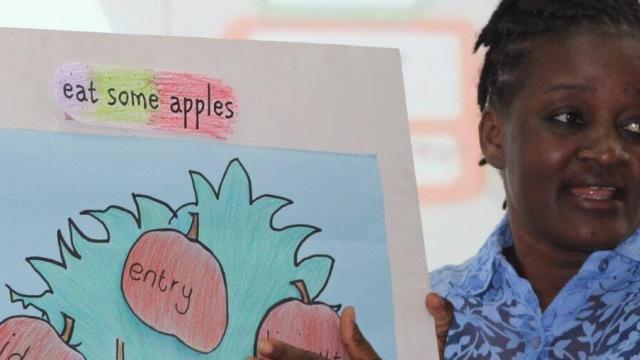Looking back at 2021, Dignitas Executive Director Deborah Kimathi reflects on her collaboration with GSF on “Supporting the Evolving Needs of Teachers” and draws out four markers of great collaboration.
In the development world, one word that gets thrown around a lot is “collaboration”. Sometimes collaboration is raised as an idea because it’s seems to be the “right thing to do”, other times sometimes funders or other stakeholders are the ones pushing for it. Sometimes, we genuinely come together around a shared vision or goal, and authentically collaborate for the sake of the bigger picture. This is exactly what happened when Dignitas and Global Schools Forum came together earlier this year to craft a learning series on “Supporting the Evolving Needs of Teachers”.
While 2020 certainly made an impression on all of us, there are two things in particular that stood out for me. Firstly, that collaboration, reaching out and working together, is important for anyone who wants to thrive in the midst of a crisis, and secondly, that teachers deserve support that will allow them to thrive professionally, so that learners can also thrive.
These two lessons formed the basis of Dignitas and Global Schools Forum’s combined effort to bring this Learning Series to life. In the words of Alexander Graham Bell, “Great discoveries and improvements invariably involve the cooperation of many minds.” By coming together around the shared goal of supporting the evolving needs of teachers, we were able to tap into both organisations’ experiences, expertise and networks to ensure we crafted something that would be impactful across the membership of Global School Forum.
Our collaboration not only ensured the ‘cooperation of many minds’, but allowed us to extend invitations across both of our networks for education actors from across the globe to share their experience as part of our Learning Series. We collated tools and resources from these actors that would contribute to an important, shared toolkit; a valuable resource for school leaders and school operators across the globe. We worked together to build something that would be valuable, and create impact in a way that neither of us could have done on our own.
What made our collaboration work?
A Shared Priority.
By no stretch of the imagination do Dignitas and Global Schools Forums have matching strategic plans, or organisational development plans, but we do have priorities that align. Dignitas has been a member of Global Schools Forum since 2018, and over the years we’ve gotten to know each other. This made it easy to identify a shared area of interest, and align around a shared priority – that of supporting the evolving needs of teachers, particularly given the ongoing global pandemic.
A Complement of Strengths.
Dignitas and Global Schools Forum were not necessarily well-matched because we are alike, but because we each bring a unique set of insight, expertise, and experience to any particular collaboration. There is reach within the Global Schools Forum’s network that we simply don’t have. There is a depth of experience of supporting teachers within the Dignitas team that is unique to Dignitas. When these unique strengths fit together like pieces of a puzzle, the stage is set for a fruitful collaboration.
A Mutual Respect.
Recognising each other’s strengths paves the way for mutual respect. This means listening, even if sceptical at first, or even if a collaborator’s experience does not mirror your own. Listening to learn, not to respond, or even worse, to prove wrong. Listening to learn together, listening to grow together makes a collaboration work.
An Equal Partnership.
So many collaborations within the development sector are, by design, unequal, inequitable and, sadly, unjust. The voice from the Global North is often the loudest and strongest, despite their distance from the realities of much development work. The money of the funder often lends extra space for their own voice, at the cost of the collaborator’s voice. The agenda of the bigger organisation often drowns the smaller organisation’s agenda. In any authentic collaboration, there is an equal partnership, where both voices, both sets of resources (including expertise and experience), and both agendas are given equal space and opportunity.
It was a real pleasure to collaborate with Global Schools Forum, and to see these four markers of great collaboration embodied in our work together. Thank you to the team at Global Schools Forum, particularly Aashti, Kavita and Divya, for working so closely with us to bring this learning series together, and ensure we built something practical, relevant, and impactful! We look forward to future opportunities to build, learn, share and grow together. Perhaps if these four elements could be replicated in more collaborations in the development sector, we’d all see a little more progress.

Deborah Kimathi is the Executive Director at Dignitas where she leads Dignitas’ strategy and growth. Before joining Dignitas, Deborah was the CEO of Vision Africa (now Raising Futures Kenya) where she still serves as a Trustee. She has been working and living in Kenya for more than seventeen years and now considers it very much ‘home’.

